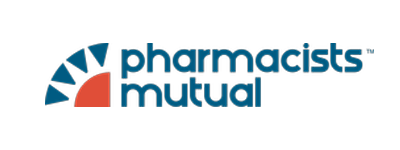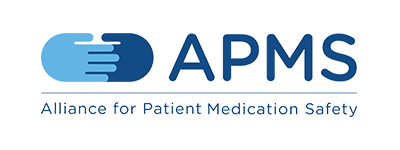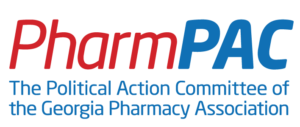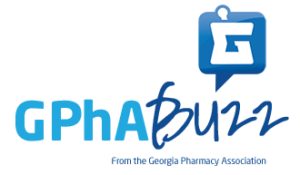Legislative update: 2019 week 12
With legislative day 40 — sine die — the lone legislative day in Week 12, there was much to wrap up in Georgia’s 2019 legislative session before the General Assembly adjourned for the year. First and foremost on the mind of Georgia’s pharmacists was GPhA’s two pieces of priority legislation, HB 233 and HB 323, which continued their improbable runs from introduction to passage by the General Assembly in one year. In particular, although both bills passed the Senate, they needed to go back to the House for an “agree,” in order to pass and go to the governor’s desk. They both did just that.
GPhA is grateful to Representative Knight, who carried both pieces of legislation; Senator Burke (carried HB 233 in the Senate); Senator Mullis (carried HB 323 in the Senate); and the many cosponsors and supporters of this legislation. Additionally, GPhA would like to thank the Georgia Society of Clinical Oncology for its support in advocating for this legislation.
Several other bills GPhA was engaged with and/or watching also made their way through the General Assembly. Remember that this year was the first year of the biennial legislative session, which means that bills that did not make cross over or sine die live to fight another year.
For an in depth discussion of legislation impacting pharmacy please join us at one of GPhA’s 12 region meetings for a legislative and regulatory briefing and join us at the Georgia Pharmacy Convention in June on Amelia Island for the important law update as well as other CPE sessions.
HB 233
HB 233 is a first of its kind patient-focused bill that will help to preserve patient choice and restrict pharmacies owned by pharmacy benefit managers and insurers from benefitting from widespread steering by their affiliates. This bill:
- Prohibits pharmacies owned by PBM and insurance affiliates from transferring or sharing records for commercial (i.e., non-patient care) purposes;
- Prohibit pharmacies from receiving self-dealing referrals from their affiliates and billing for them (referral includes ordering of patients to affiliate pharmacies; designing and implementing plan designs that require patient to use affiliate owned pharmacies; and patient-specific marketing by affiliates);
- Requires pharmacies to disclose affiliates to the Board of Pharmacy; and
- Gives the Board of Pharmacy oversight for this law, as the Board of Pharmacy already has existing oversight of licensed Georgia pharmacies (and pharmacies mailing into the state who must hold a non-resident pharmacy permit).
HB 323
HB 323 is an update to the Pharmacy Patient Protection Act of 2017. This bill regulates PBMs and does the following:
- Strengthens existing mandatory mail order provisions;
- Adds PBM transparency provisions in connection with rebates by requiring annual reporting of rebate information to payors/clients;
- Prohibits PBMs from steering patients to affiliate pharmacies;
- Prohibits sharing patient info with affiliate pharmacies for commercial purposes;
- Prohibits knowingly making misrepresentations to patients or providers;
- Restricts PBMs from charging fees or penalties in connection with audits;
- Applies existing law restricting onerous accreditation standards to PBMs; and
- Applies protections of this act to other dispensers such as oncologists and their patients.
Please note that neither bill restricts PBM-owned pharmacies from being included in networks, and contain exceptions for limited-distribution drugs not commonly carried by retail pharmacies and oncology clinics.
One more win
For the second year in a row, language was included in the budget that requires plan sponsors to report pharmacy claims to DCH, and requires DCH to prepare a report to the chairs of the House and Senate appropriations committees containing aggregated data. This report will provide information on PBM spread pricing as well as information regarding amounts of rebates and who kept them.
Georgia continues to be one of the early states looking into PBM spread pricing practices and insisting on transparency. Additionally, as a reminder, GPhA received a commitment from Georgia’s Medicaid managed care organizations to move away from spread pricing entirely in their future contracts with pharmacy benefits managers.
Other bills of note
HB 63
Rep. Cooper’s step therapy legislation, the changes to the bill were agreed to by the House and it now goes to the governor. GPhA is pleased to see this bill pass after coming close to the finish line in previous years.
HB 213
As previously reported, Rep. Corbett’s Hemp Farming Act was passed by the Senate and agreed to by the House in Week 11 and now awaits the Governor’s signature. GPhA will be providing further explanation of this legislation in the days to come.
HB 290
Rep. Cooper’s bill providing for a pilot program to offer preexposure prophylaxis drug assistance or services to persons at risk of being infected with HIV completed its journey through the General Assembly in week 11.
HB 324
Rep. Gravely’s update to Haleigh’s Hope Act (low-THC oil) went to conference committee and both the House and the Senate agreed to the Conference Committee report and the bill now goes to the governor. Pharmacy is central to this legislation, which would allow retail pharmacies to obtain a nontransferable specialty-dispensing license to dispense low-THC oil (once the rules are established by the Georgia Board of Pharmacy). GPhA will be providing a more in-depth analysis of HB 324 in the days to come and, assuming the legislation is signed by the governor, will be providing additional updates as this issue evolves.
HB 481
Rep. Setzler’s bill relating to abortion went to the governor in week 11. The bill, amongst other things, restricts abortions (subject to certain exceptions) after a heartbeat is detected. For purposes of pharmacists, it is important to note that the definition of abortion means “the act of using, prescribing, or administering any instrument, substance, device, or other means with the purpose to terminate a pregnancy….” As previously reported, pharmacists engaged in the practice of pharmacy are not liable under the legislation when providing care for a pregnant woman that results in the accidental or unintentional injury or death of an unborn child.
HB 483
As previously reported, Rep. Stephen’s annual drug update legislation awaits the governor’s signature.
Rep. Hill’s legislation dealing with the regulation of kratom awaits the governor’s signature.
SB 103
Sen. Tillery’s legislation allowing the state to request Medicaid waivers was signed into law by Governor Kemp in Week 11. GPhA will continue to monitor the waiver process closely.
SB 115
Senator Unterman’s bill allowing telemedicine licenses to be issued to physicians who are licensed in other states went to the governor in week 11. Remember, this legislation also includes language from Rep. Stephen’s bill (HB 214) removing the requirement that a physician entering into a vaccine protocol agreement with a pharmacist must be in the same health district was added into this legislation.
SB 118
Also going to the governor in week 11 was Sen. Unterman’s TeleHealth Act establishing, amongst other things, a prohibition on insurers requiring patients to use telemedicine, and pay equity for providers using telemedicine.
SB 121
Sen. Walker’s PDMP revision bill completed its journey through the General Assembly in week 10. This bill increases the time prescription information is maintained from two to five years and would authorize the attorney general’s Medicaid Fraud Unit to access the PDMP database for enforcement purposes.
SB 142
Sen. Walker’s bill requiring fully insured plans include a statement saying so on health insurance identification cards was agreed to by the House on day 40 and is off to the governor’s office.












